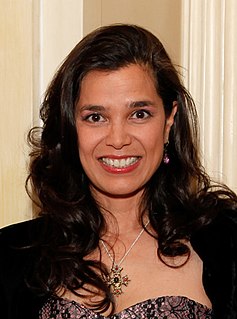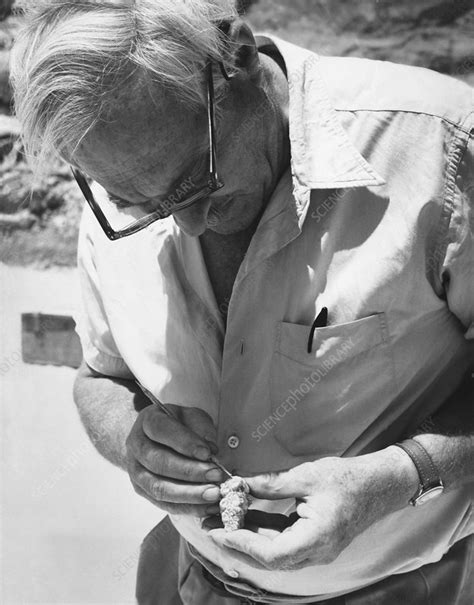A Quote by Elliott Sober
Darwin and his successors have railed against the fallacy of confusing the current utility of a trait with the reason the trait evolved. For example, Darwin argued that skull sutures in mammals did not evolve because they facilitate live birth; the sutures were in place well before live birth evolved. Checking the chronological order in which different traits evolved in a lineage is one way to test an adaptive hypothesis; the fact of common ancestry is what makes that checking possible.
Quote Topics
Adaptive
Against
Ancestry
Argued
Because
Before
Birth
Checking
Chronological
Common
Confusing
Current
Darwin
Did
Different
Evolve
Evolved
Example
Facilitate
Fact
Fallacy
For Example
His
Hypothesis
Lineage
Live
Makes
Mammals
One Way
Order
Place
Possible
Reason
Skull
Successors
Test
Trait
Traits
Utility
Way
Well
Were
Which
Related Quotes
Darwin repeatedly used the hypothesis of common ancestry as a platform on which to build his various ideas about testing hypotheses concerning natural selection. He also argued that adaptive similarities provide little or no evidence for common ancestry. Although this second claim needs to be fine-tuned, Darwin was right that ample evidence for common ancestry can exist even if none of the characteristics we observe were caused to evolve by natural selection.
If the organisms in a species now have trait T, and this trait now helps those organisms to survive and reproduce because the trait has effect E, a natural hypothesis to consider is that T evolved in the lineage leading to those current organisms because T had effect E. This hypothesis is "natural," but it often isn't true!
Evolutionary biologists often appeal to parsimony when they seek to explain why organisms "match" with respect to a given trait. For example, why do almost all the organisms that are alive today on our planet use the same genetic code? If they share a common ancestor, the code could have evolved just once and then been inherited from the most recent common ancestor that present organisms share. On the other hand, if organisms in different species share no common ancestors, the code must have evolved repeatedly.
Darwin theorized that mankind (both male and female) evolved alongside each other over millions of years, both reproducing after their own kind before the ability to physically have sex evolved. They did this through "asexuality" ("without sexual desire or activity or lacking any apparent sex or sex organs"). Each of them split in half.
Darwin's principle of natural selection leads to the prediction that the proper way to analyze any evolutionary development is to see the new features as adaptive to environments. And that's a perfectly good principle. The problem is that there are many evolutionary biologists who view everything that happens in evolution as directly evolved for adaptive benefit. And that just doesn't work. Whenever you build a structure for adaptive reasons, the structure is going to exhibit properties that have nothing to do with adaptation. They're just side consequences.
Let's find and remedy all our weaknesses before our enemies get a chance to say a word. That is what Charles Darwin did. ...When Darwin completed the manuscript of his immortal book "The Origin Of Species" he realized that the publication of his revolutionary concept of creation would rock the intellectual and religious worlds. So he became his own critic and spent another 15 years checking his data, challenging his reasoning, and criticizing his conclusions.
As conscious adult women, we need to instill a different value system. Actually, it is an innate value system. We need to tell the world that being compassionate about other people does not make you weak, and it is not intrinsically a female trait. It is a trait of the evolved human being, and it is a trait that we need to hold up as something of great worth. As women, we need to promote that, emphasize that, and nurture that. This is part of what we are doing with Global Girl Media.
The siblings of special needs children are quite special. Absolutely accepting and totally loving, from birth, someone who is different mentally, and has a different way of seeing the world, is a wonderful trait. It's a trait I wish there was another way of getting, but there isn't. And it does involve a degree of not having it fantastically easy.
Back in the really early days, the men went out hunting, the women stayed home with the kids, and would hold the kid in one arm against the heart, so that's the left, and with the right arm they would throw. And it turns out you cannot make that calculation in real time. You have to have an algorithm set up. So these brain mechanisms evolved in order to do that, and when they evolved, the thing is that where there is a useful capability it often adapts to places it wasn't evolved for.
For example, both humans and chimps have a broken copy of a gene that in other mammals helps make vitamin C. ... It's hard to imagine how there could be stronger evidence for common ancestry of chimps and humans. ... Despite some remaining puzzles, there's no reason to doubt that Darwin had this point right, that all creatures on earth are biological relatives.
It is now generally accepted that the roots of our ethics lie in patterns of behavior that evolved among our pre-human ancestors, the social mammals and that we retain within our biological nature elements of these evolved responses. We have learned considerably more about this responses, and we are beginning to to understand how they interact with our capacity to reason.




































